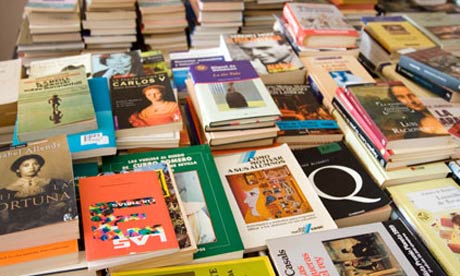
Experts say that next year one in four Spanish publishing houses will offer digital versions of over half their catalogue.
Digitisation is the greatest challenge to publishing at the worst possible moment, when the financial crisis is reducing incomes and well-established forms of work are facing a paradigm shift. But the most striking transformation of the last few years has been brought about by a handful of young and independent editors. They often come from very commercial publishing houses, and, thanks to the new technologies, have thrown themselves into the market with hardly any business plan, ready to satisfy readers hungry for quality.
These editors have reinvigorated a sector with an enormous economic and political significance (it makes up 1% of GDP, employs 30,000 people and many more indirectly; and, as the poet would say, Spanish is a weapon loaded with future). There are, of course, heavyweights too: large groups with a presence in many countries. The sector publishes in four languages (Spanish, Catalan, Basque, and Galician), and in 2009 there were 76,213 titles edited (reprints included); 329.8m copies published (average print run: 4,328 volumes); and 236.2m copies sold.
The paradox is that editors (and authors too, but that's another story) are sprouting like mushrooms in a country in which only 57% of the population over 14 reads books in its free time, and not many books at that, given that the average is 9.8 books a year.
An explanation? Perhaps the one given by one of the new editors mentioned above: "the publishing sector has contradictions, but there is room for adventure". And what we have to do is make the most of it.
Eva Orúe blogs on publishing and literature at divertinajes.com

